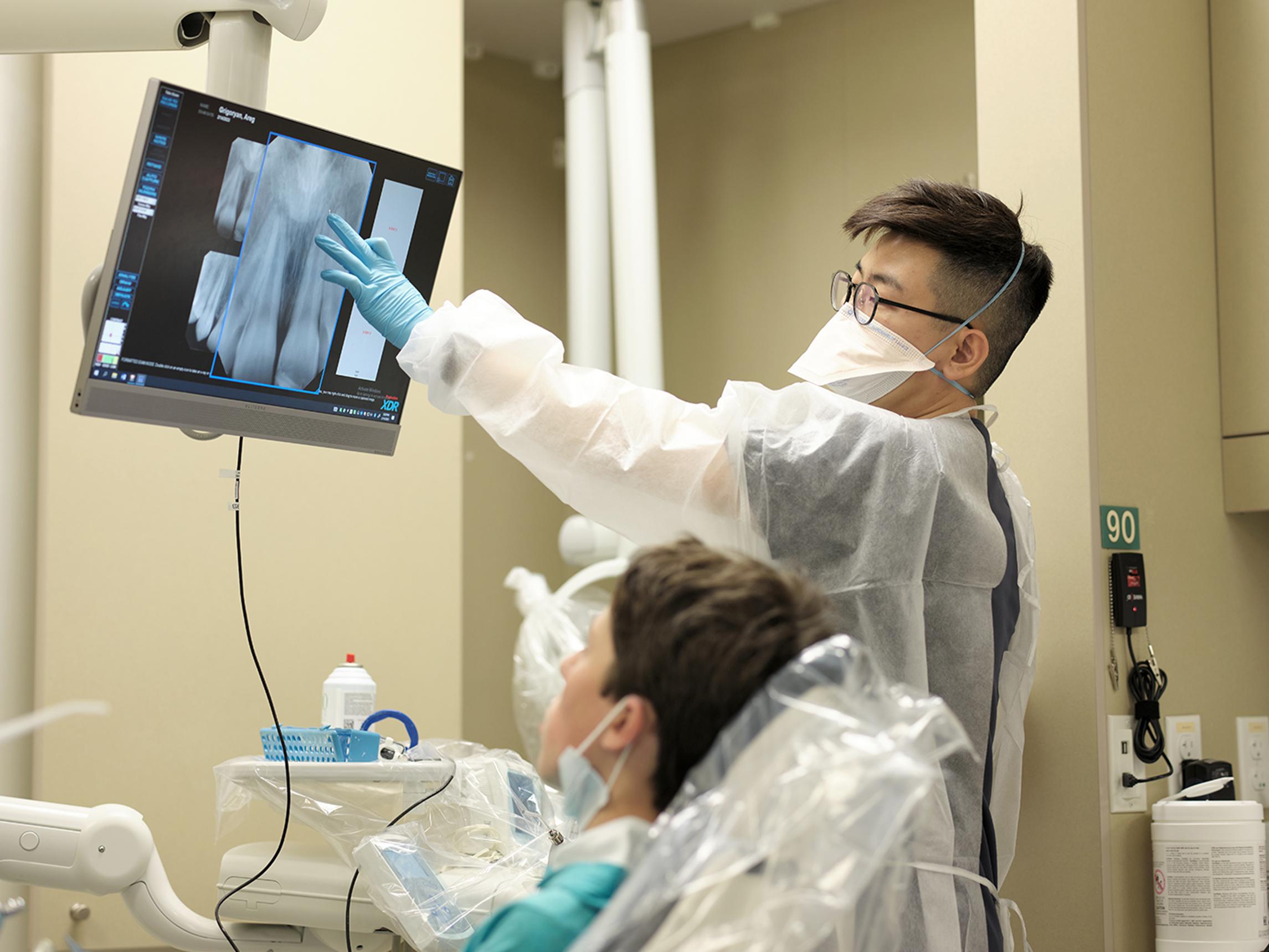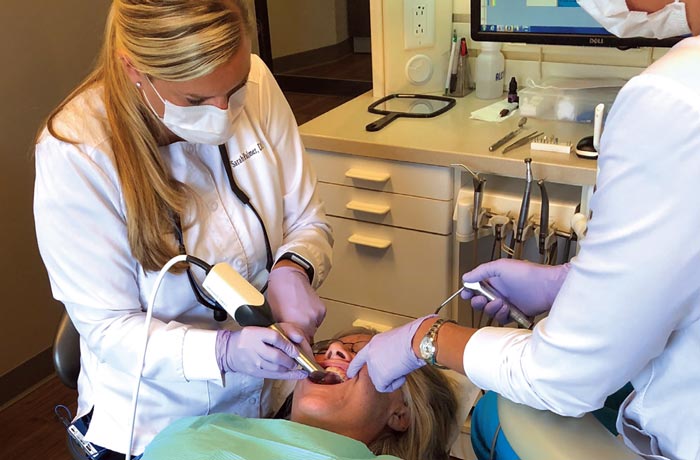Discover Frequent Oral Issues Your Dental Professional Can Resolve
Understanding constant dental worries is essential for keeping ideal dental health. Concerns such as tooth cavities, gum tissue illness, tooth sensitivity, negative breath, and tooth decay are usual yet typically overlooked up until they end up being extreme. Routine oral check outs and personalized treatment strategies can deal with these troubles efficiently, ensuring a healthier and brighter smile.
Cavities
Dental caries, additionally recognized as tooth decays, are a widespread dental wellness problem caused by the demineralization of tooth enamel because of acid manufacturing from bacterial plaque. This process starts when bacteria in the mouth metabolize sugars and starches from food, generating acids that wear down the enamel. Otherwise attended to quickly, this disintegration can permeate deeper into the tooth, affecting the dentin and ultimately the pulp, potentially bring about serious discomfort and infection.
The very early stages of dental caries formation frequently existing as white areas on the tooth surface area, suggesting initial demineralization. As the procedure advances, these places can develop right into black or brown sores, representing extra comprehensive degeneration. Routine oral examinations are essential for early discovery, as dental caries in their inceptive phases can be treated with remineralization techniques, such as fluoride therapies.
Once a tooth cavity has actually developed, restorative treatment is essential. Dental professionals typically eliminate the corroded part of the tooth and fill the dental caries with materials such as composite resin, amalgam, or ceramic. In more severe situations, a crown or origin canal treatment may be needed. Safety nets, consisting of great dental health practices and nutritional alterations, play a crucial function in alleviating the threat of cavities.
Gum Condition
While dental caries stand for a considerable worry for dental wellness, an additional critical issue that requires focus is gum tissue condition. Additionally called periodontal disease, gum disease is an inflammatory condition influencing the cells bordering and sustaining the teeth. It is mostly triggered by the accumulation of plaque-- a sticky film of bacteria that bases on teeth.
Periodontal illness advances through stages, beginning with gingivitis, identified by soreness, swelling, and hemorrhaging gums (dentist eugene oregon). If left neglected, gingivitis can rise to periodontitis, where the inner layer of the periodontal and bone draw away from the teeth, creating pockets that end up being infected. Gradually, the toxic substances created by the microorganisms damage down the bone and connective cells that hold teeth in area, possibly causing tooth loss
Very early detection and treatment are important. Professional oral cleansings and enhanced dental hygiene methods, such as brushing twice daily and flossing, can manage gingivitis. For more innovative stages, therapies might include scaling and origin planing, antibiotics, or even medical interventions.
Routine oral check-ups play an essential duty in handling and protecting against periodontal condition. Dental practitioners can identify early indications and advise appropriate interventions, making certain the upkeep of healthy periodontals and general dental health.
Tooth Sensitivity
Tooth level of sensitivity influences countless people worldwide, offering an usual yet typically distressing oral concern. This condition develops when the enamel, the outermost protective layer of the teeth, is compromised, exposing the underlying dentin. The dentin has microscopic tubules that lead directly to the dental pulp, where nerves live. When subjected to stimulations such as warm, cool, wonderful, or acidic materials, these nerves are caused, causing sharp discomfort or discomfort.
Several elements contribute to enamel erosion and subsequent tooth sensitivity, including aggressive brushing, acidic foods and beverages, periodontal economic crisis, and bruxism (teeth grinding) In addition, oral treatments such as teeth bleaching can briefly increase level of sensitivity.
Poor Breath
Another widespread dental problem that impacts individuals' day-to-day lives is bad breath, clinically called halitosis. Halitosis often stems from poor oral health, which permits food fragments to remain in the mouth, cultivating microbial growth.

Dental experts play a vital role in detecting and treating bad breath. They can determine the root cause through an extensive assessment and offer customized suggestions and treatment plans. Suggestions might entail enhancing oral health techniques, such as normal brushing and flossing, utilizing anti-bacterial mouthwashes, remaining hydrated, and dealing with any kind of oral issues. In many cases, a referral to a professional might be needed to take on underlying illness adding to bad breath. Reliable monitoring of bad breath not only improves dental health and wellness yet additionally find more information substantially boosts lifestyle.
Dental Cavity

Stopping tooth decay entails a mix of good oral hygiene methods and regular dental examinations. Cleaning teeth at the very least two times daily with fluoride toothpaste, flossing to eliminate plaque in between teeth, and restricting the intake of sugary foods and drinks are necessary preventive procedures. Fluoride therapies, oral sealers, and specialist cleansings given by a dental practitioner can also play a significant duty in fortifying enamel and stopping degeneration.
When dental cavity takes place, very early treatment is vital. Dental experts can eliminate corroded tissue and restore the tooth with fillings made from products such as composite resin, amalgam, or porcelain. In advanced instances, therapies like crowns, root canals, or removals might be essential. By resolving tooth degeneration immediately, dental professionals help preserve oral framework and function, ensuring long-term visit oral health.
Final Thought
Dealing with usual dental issues such as tooth cavities, gum illness, tooth sensitivity, foul-smelling breath, and tooth decay is vital for preserving optimal dental health and general well-being. Dental practitioners have the experience to identify and deal with these problems properly, making certain customized look after each individual. Regular dental exams and preventative steps are vital in identifying and handling these concerns early, promoting a much healthier and more positive smile over a lifetime.

Tooth decay, additionally known as oral decays, takes place when the enamel, the outermost layer of the tooth, is deteriorated by acids generated by germs in the mouth. Brushing teeth at the very least twice daily with fluoride toothpaste, flossing to eliminate plaque between teeth, and restricting the intake of sweet foods and beverages are crucial precautionary procedures.Attending to common oral issues such as cavities, periodontal disease, tooth level of sensitivity, poor breath, and tooth decay is critical for preserving optimum dental health and wellness and overall health.